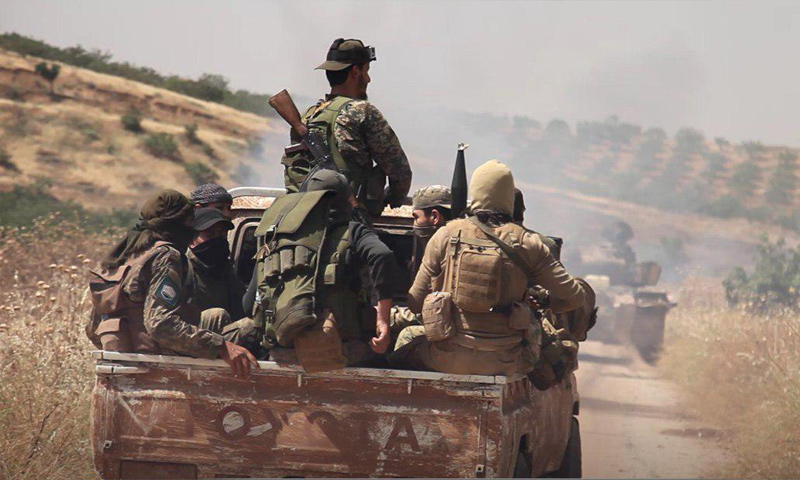Hayat Tahrir al-Sham (HTS) has finally returned to the spotlight after a weeks-long silence over the developments in the East Euphrates and the Syrian north more generally.
Several military and political developments have shaken up the Syrian crisis over the past few weeks including the Turkish military operation in northeastern Syria and the preparations for the upcoming inaugural meeting of the Syrian constitutional committee in Geneve, Switzerland.
In a statement to the HTS-linked Ibaa news agency, Abu Khaled al-Shami, the spokesperson for the military wing of the HTS, said that “Idlib remains outside any international or regional understandings that may harm the principles and goals of the revolution … and its independence.”
The statement, on Friday 25 October, added that “in the same way that countries have interests, the revolution also has its own interests and principles, which the HTS will not compromise, and foremost among these is the downfall of the criminal regime.”
Syrian and Russian warplanes, in the past few days, have stepped up their bombardment of the areas of Idlib’s southern countryside and Latakia’s northern countryside. This comes on the heels of major progress regime forces have made over the past few months at the expense of opposition forces. Regime forces have regained control over the whole of Hama’s northern countryside as well as the strategically-important city of Khan Shaykhoun.
There is uncertainty over the fate of Idlib in the near future, especially as Russia ramps up the threat of a military operation there under the pretext of combatting the HTS, designated as a terrorist organization.
In his latest statement regarding the situation in Idlib, UN Special Envoy to Syria, Gier Pedersen, said that the solution in the Idlib province is a political rather than a military one. Pedersen said that a full-scale military operation will not contribute to a solution. The statements came in an interview with al-Sharq al-Awsat newspaper on 24 October, where Pedersen told the paper that “we have encouraged Russia and Turkey to abide by the memorandum of understanding they signed in Sochi and to deal with elements designated by the UN Security Council (UNSC) as terrorists.”
The UN envoy said that the situation in Idlib is “complex”, and that there is a need for a solution that guarantees security for civilians while also addressing the presence of UNSC-designated terror groups.
Idlib is now subject to a unilateral ceasefire announced by Russia on 30 August, to which opposition groups have not officially responded.
The Russian and Turkish presidents, Vladimir Putin and Recep Tayyip Erdoğan, discussed during a recent summit two days ago in Sochi, the situation in Idlib. Erdoğan had expressed his satisfaction with the situation in the region: “we discussed the situation in the de-escalation zone in Idlib, and we are satisfied for the relative calm there and the decline of attacks.”
For days now, Russian airplanes have been bombarding rural Idlib and Latakia. No comments were forthcoming from the Russian ministry of defense about the bombardment which is a violation of the unilateral ceasefire declared by Moscow and Damascus on 30 August.











